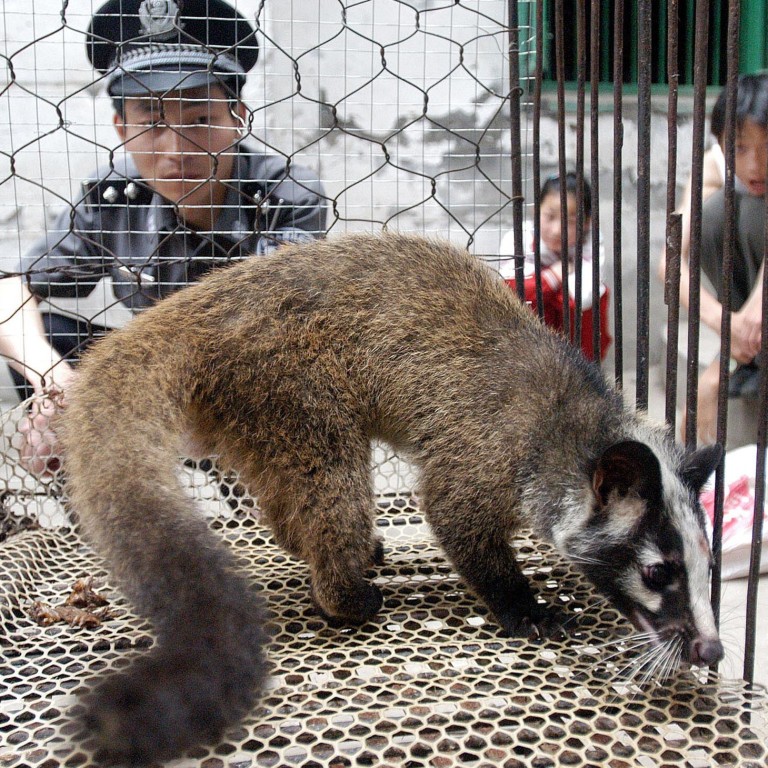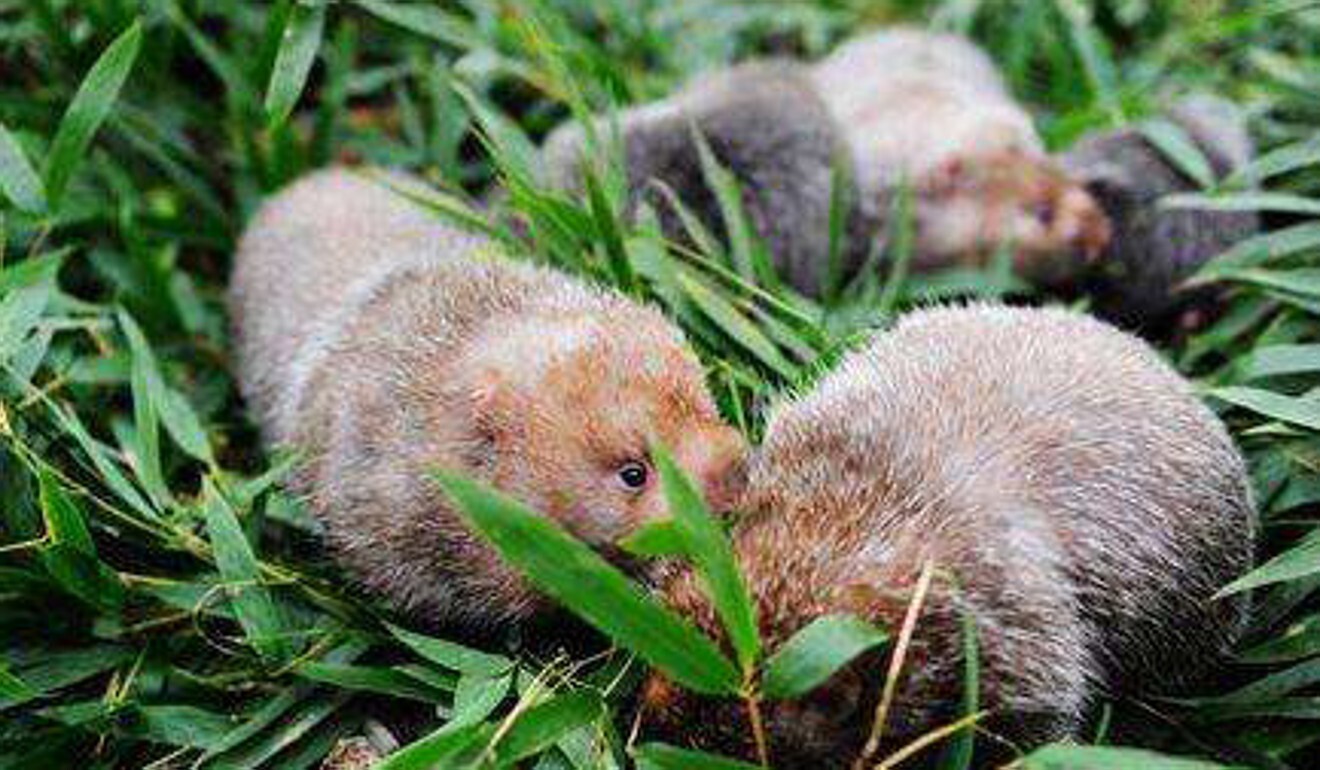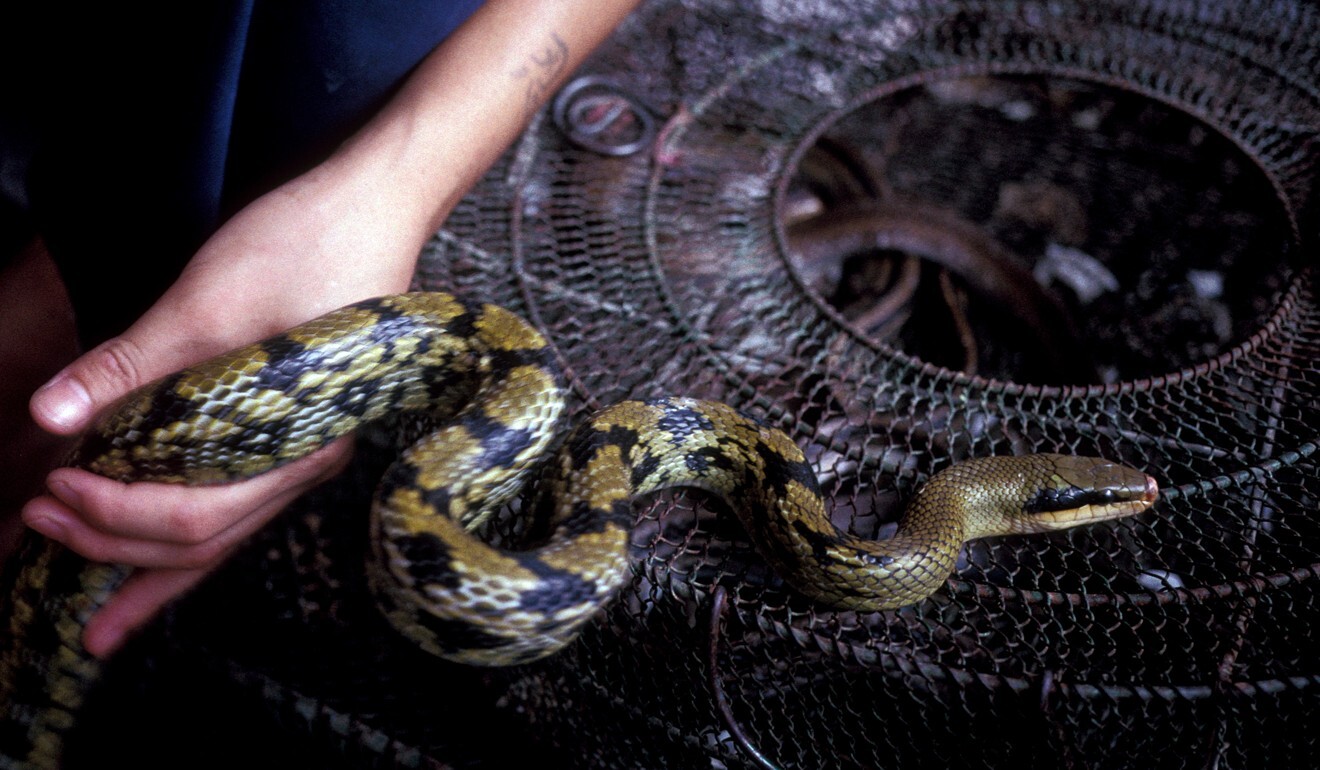
Coronavirus: Wuhan confirms China’s ban on trade, eating of wild animals
- City at epicentre of initial Covid-19 outbreak also prohibits hunting and breeding except for selected, preapproved purposes
- Move follows central government’s fast-track decision in February to restrict wild animal trade
“Online trading platforms, commercial markets, agricultural markets and restaurants, as well as transport and logistics companies shall not supply venues or services for wildlife consumption,” the city government said on its website on Thursday.
The hunting of wild animals was also now banned, the notice said, except for the purposes of “scientific research, population regulation and monitoring of epidemic diseases”.
A similar restriction applied to the breeding of non-domesticated animals, with exceptions for the purposes of “species protection, scientific research and animal exhibitions [such as zoos and wildlife parks]” that had been approved by the government, it said.
As Covid-19 has spread around the world, China has faced widespread criticism of its initial handling of the outbreak and calls have been growing for an independent investigation into the origin of the disease.
Most researchers believe the coronavirus passed from animals to humans before spreading and mutating.
While the Huanan Seafood Wholesale Market in Wuhan, which was the initial focus of the outbreak, has not been confirmed as the source of the health crisis, it was known to have sold live wild animals and poultry before it was closed down in January.
Since the introduction of the ban on wild animal trade, government agencies at both the national and provincial level have published plans to compensate those affected by it.

On April 8, the National Forestry and Grassland Administration published a notice requiring local officials to compensate breeders, and several provinces, including Hunan, Guangdong and Jiangxi, have since responded.
On Monday, the Hunan government said it would make one-off payments to breeders of 14 kinds of wild animals, including bamboo rats, guinea pigs, muntjac deer, civets and snakes, subject to them releasing their animals back into the wild or otherwise disposing of them.
Payments would vary from as little as 24 yuan (US$3.40) for a guinea pig to 2,457 yuan for a muntjac.

Sara Platto, from the China Biodiversity Conservation and Green Development Foundation, a non-profit organisation based in Beijing, said she welcomed the compensation scheme.
“It’s good to see China is giving incentives to people who are hunting, breeding or selling wildlife. It’s important to take care of them and don’t leave them stranded,” she said.
However, Zhou Haixiang, a member of the Chinese National Committee for Man and Biosphere, an environmental protection group, said the government’s measures did not go far enough.
“The bans are on wildlife consumption, but from an ecological point of view, we should ban all commercial use of wild animals,” he said.
Animals bred for food made up just 30 per cent of the total, Zhou said, while commercial operations, such as fur farms and wildlife parks, accounted for 70 per cent.

